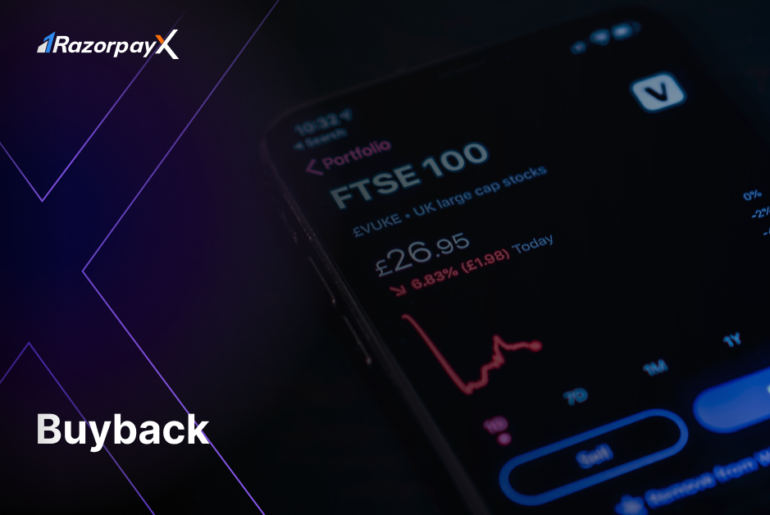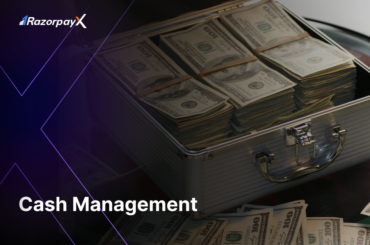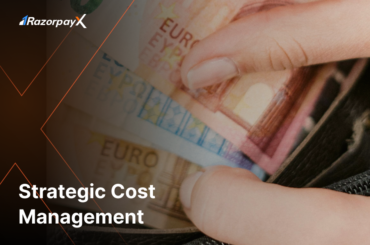Buyback is a practice where a company decides to buy its own shares from investors. They purchase it either from the open market or through a tender. As a result, the number of shares available in the market reduces.
Generally, a company decides to repurchase its shares when it intends to increase the value of remaining shares in the stock market. By opting for this process, a company returns funds to shareholders.
Table of Contents
What is Share Repurchase or Buyback?
Buyback or share repurchase is when a business purchases its own shares available in the stock market. There are various outcomes to this process, such as inflation in earnings per head (positive), reduction in the number of shares outstanding in the market, etc.
The shares which are repurchased are cancelled from stock lists and are redistributed in the future. Hence, this process of buyback creates a supply crunch of shares which immediately increases its demand. Moreover, this boost in demand increases the prices of these shares, adding value for shareholders.
Process of Buyback or Share Repurchase
Method 1: In this case, a company may initiate a buyback from an open market. They can do so through a secondary market by contacting their brokers to buy back a large number of shares over a specific period.
Method 2: In other cases, a company opting to buy back some portion of outstanding shares, may issue a tender offer. This tender offer specifies a bid to purchase shares from shareholders and is made public to create awareness. In addition, this offer specifies that share prices and a timeframe open for this buyback program.
The company proceeds with buyback at a fixed price which is over and above the prevailing market value. The effect of this scheme speeds up the contraction of outstanding shares floating in an open market.
Example of Share Buyback
Let’s consider that a company has 50 lakhs shares outstanding in the stock market and Rs.50 crore as cash. The market value per share is Rs 10. At the beginning of the financial year, a company decides to buy back 10 lakhs shares using Rs 1 crore cash from an open stock market. Now, this company has Rs 49 crores as cash-in-hand and 40 lakhs shares outstanding in the share market.
Hence, through this buyback program, a company reinvest in itself using a portion of its excess cash.
Reasons For Share Buyback
-
Increase in Share Prices
One of the pivotal reasons company owners initiate a buyback program is to increase the price of its share in an open market. Sometimes, a company may consider share prices to be undervalued in comparison to competitors. Hence, a company would repurchase some outstanding shares from an open market to decrease the supply of the same.
Eventually, the demand for these shares will increase, accelerating the per unit price of shares. Furthermore, this will establish a profitable condition for the company.
-
Surge in Shareholder Value
Earning-per-share (EPS) indicates a company’s level of earning profits concerning the outstanding shares of common stocks. To calculate EPS one needs to divide the company’s profits by the total number of outstanding common shares. In case it’s low, companies initiate a buyback program periodically. It decreases the level of these outstanding shares in an open market.
Hence, the shortage of supply and the high-on-demand situation of these shares increases the EPS margin. This further creates a value addition to the existing shareholders of the company. Due to this effect, existing shareholders now possess greater stakes and hold shares that are higher in unit prices.
-
Tax Effectiveness & Benefits
The buyback of shares using excess cash-in-hand is a better tax-effective option than initiating dividend payments. Dividend payments attract high tax under the corporate tax regime and companies can avoid it through repurchase. In fact, it is taxed at three different levels.
Stock buybacks, on the other hand, only attract DDT and this amount gets deducted before shareholders get the surrendered earnings.
-
Better Utilisation of Excess Cash-in-Hand
Generally, companies use excess money to buy back shares. This lets existing investors know that there isn’t any shortage of cash inflows to tackle any emergencies. In addition to this, keeping large liquid cash in banks does not offer benefits in the long run. Also, initiating a buyback program rather than reinvesting in alternative assets like private equity, tangible assets, etc., showcases the healthy financial status of a company.
Thus, medium and large-sized businesses often opt for this practice to increase the value of the remaining stocks and surge the profit margin in the long run.
The Bottom Line
While share buybacks are important for businesses’ good financial management, another important factor is the banking platform that businesses use.
One-stop banking solutions platforms like RazorpayX allow business owners to open current accounts, pay taxes, schedule payments, pay vendors seamlessly and check invoices from a single dashboard – saving valuable time and effort.
FAQs
What is the difference between buyback and redemption of shares?
In the case of a share buyback, a company purchases back the shares from shareholders at a price higher than the market value. On the other hand, during the redemption of shares, a company asks shareholders to sell a part of their shareholdings back to the company. The company sets a call price for all these redeemable shares which is set during the issuance of shares.
What is the direct effect of the share buyback on a financial statement of a business?
Share buyback directly impacts the financial statements of a business as well as the income statement of the company. The cash companies use to repurchase stocks record it in the business's earnings reports and under the cash flow statement as financial activities. It influences a decrease in the company’s cash holdings and total assets.
How will you compare dividends and share buyback?
One of the basic differences between dividends and share buyback is that every existing shareholder of a company receives a dividend. Whereas, during share repurchase, shareholders who want to participate in the following are only invited.
How do share buybacks affect investors?
When a company calls for a buyback of its shares, it eventually increases the earning per share of outstanding shares in this market. Hence, this puts existing investors or shareholders in a much more beneficial position with their increased stake in a company.





